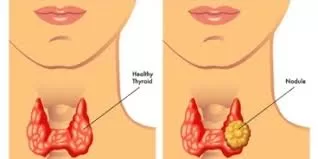Oslo, Norway — A groundbreaking study published in Nature Communications reveals that early antibiotic use and prolonged hospitalization leave a distinct “nasopharyngeal microbial scar” in preterm infants. The research underscores the critical need for careful antibiotic stewardship and infection control in neonatal intensive care units (NICUs), emphasizing the balance required between life-saving treatments and their potential impact on developing microbiomes.
Preterm infants, particularly those born between 28 and 32 weeks of gestational age, are highly susceptible to infections, often necessitating early antibiotic interventions. However, a new study, “Prolonged Hospitalization Signature and Early Antibiotic Effects on the Nasopharyngeal Resistome in Preterm Infants,” conducted by researchers from the University of Oslo, Oslo University Hospital, the Norwegian Institute of Public Health, and Rigshospitalet in Denmark, sheds light on the implications of these early interventions.
The study involved a cohort of 36 preterm infants, with nasopharyngeal aspirate samples collected from 198 participants at Oslo University Hospital’s Ullevål Neonatal Intensive Care Unit. The infants were categorized into two groups: those receiving antibiotics within the first 24 hours of life due to the risk of early-onset neonatal sepsis (EONS) and those who did not. The samples were analyzed using shotgun metagenomics, a comprehensive technique for identifying and characterizing antibiotic resistance genes (ARGs) in microbial communities.
The results indicated that while early antibiotic treatment led to temporary disruptions in the nasopharyngeal resistome, the overall diversity and abundance of ARGs did not significantly differ between the treated and control groups by 8-10 months of age. However, a notable finding was the persistence of ARGs associated with the nosocomial pathogen Serratia marcescens, which remained in the nasopharynx of 92% of the affected infants long after hospital discharge.
Dr. Achal Dhariwal, who led the bioinformatic analysis, emphasized, “Our findings underscore the importance of hospital environments in shaping the preterm infants’ resistome.”
Unlike previous studies on gut resistomes, which showed long-term colonization by antibiotic-resistant bacteria, this study found no lasting alterations in the nasopharyngeal resistome beyond the early months of life. Nevertheless, the consistent presence of resistance genes linked to Serratia marcescens highlights the enduring impact of hospitalization.
Dr. Lars Petersen, senior author and Professor at the University of Oslo, noted, “We did not expect such a pronounced signature from a single organism.”
This research is among the first to provide a comprehensive analysis of the nasopharyngeal resistome and microbiome in preterm infants. The study’s successful application of advanced metagenomic techniques on a larger scale sets a new standard for future investigations.
The nasopharyngeal microbiome plays a crucial role in preventing infections and maintaining overall health by inhibiting pathogen growth and interacting with the gut microbiome to regulate immunity. Despite its significance, research in this area has been limited due to technical challenges. This study’s methodological advancements offer a new framework for exploring the immediate and long-term effects of antibiotic exposure.
Dr. Petersen concluded, “Antibiotics are invaluable, but their use must be judicious. In countries with high levels of antimicrobial resistance, the implications for preterm infants could be more severe, potentially affecting their health outcomes.”
The study’s findings highlight the need for stringent antibiotic stewardship and infection control measures in NICUs. They also pave the way for future research into the nasopharyngeal microbiome and other respiratory niches, aiming to improve outcomes for the most vulnerable patients.
For more information, refer to: Achal Dhariwal et al, “Prolonged hospitalization signature and early antibiotic effects on the nasopharyngeal resistome in preterm infants,” Nature Communications (2024). DOI: 10.1038/s41467-024-50433-7











